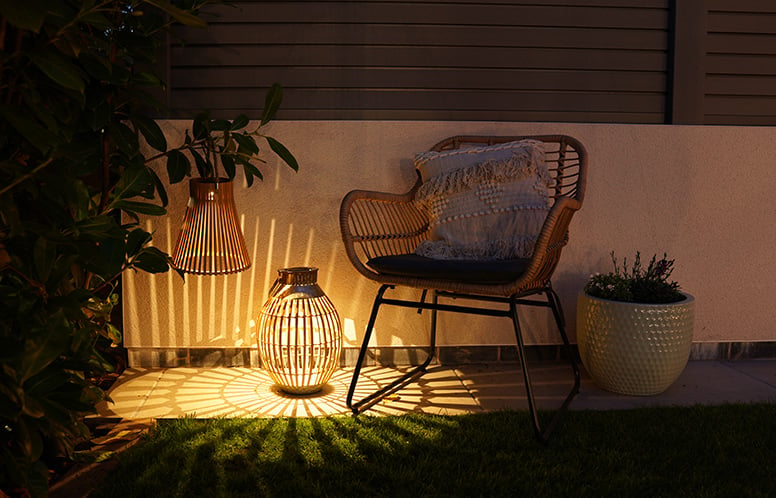

Solar Lights FAQs
Answers to common questions about solar lights
General Solar Lights Questions
Why do solar lights stop working?
Solar lights simply won’t work if they’re not getting the sun that they need to keep the battery charged. In the first instance, try moving your solar light into a better lit area to see if that fixes the issue. If this doesn’t work, head to our dedicated blog to find more hints and tips to make the most out of your lights.
Will solar lights work in winter?
The general rule of thumb for solar lights is that if your lights are receiving enough daylight, they’ll work throughout the night. So even in the winter months when you’re hiding from the cold and the rain indoors, your lights will still be soaking up the natural (albeit limited) light to run. The main thing to remember is that with little sun comes little light, so the light emitted and performance of your lights will be significantly diminished.
Can street lights affect solar lights' performance?
Yes. Solar lights use sensors that detect when it gets dark and are designed only to switch on when that happens. If solar lights are positioned too close to street lights or in very well-lit areas, this can trick the solar light into believing it's still daytime, thus preventing the light from activating.
Can solar lights charge through glass?
Solar lights don’t run off the heat from the sun, they’re powered through the light from the sun.
So, yes, solar lights can charge through glass, as long as it gets regular access to natural sun light. Though, it is worth saying that charging through glass will see a reduction in your light's efficiency of as much as 50%.
Can solar lights charge in shade?
Now, this one’s tricky. It all comes down to what your definition of ‘shade’ is.
If you pop your solar lights behind a wall that gets very little light throughout the day, chances are that won’t get the glow you’re after. If you opt to place your lights under a shady tree, sun light will peak through the branches and leaves to hit the battery board, and there’ll be light!
Can solar lights work inside?
Although solar lights are known for their outdoor use, more and more people are using them indoors in a bid to make the switch to renewable energy sources. If you are interested in incorporating solar lights into your interior décor, we’re recommend placing them on a windowsill or under a skylight to ensure they can be charged through a window.Will solar lights charge on a cloudy day?
Despite the unpredictable weather, garden solar lights in the UK have never been more popular. Obviously, your lights will produce more energy after a sunnier day, but the UK still has plenty of sunlight to power your lights, even on the gloomier days.Are solar lights waterproof?
Solar lights do exactly what they say on the tin. They’re powered by solar, meaning they must sit in direct sunlight in order to power the rechargeable battery inside. As solar lights are predominately for outdoor use, they are waterproof, but we’d recommend wiping them down every now and then to keep the dust and dirt away.
Are solar lights safe?
Solar lights are very safe, as long as they’re functioning properly, and you take good care of them. Keeping your solar lights clean and unplugging them when you’re away is a great way to prolong the lights lifespan.
Are solar lights bad for plants?
If placed appropriately, solar lights can actually help your plants grow when there is not enough sunlight around. The lack of gloom may help your flowers bloom but be sure the lights are not shining directly on the leaves as they could potentially burn. If you notice that your plants are struggling, try moving the lights somewhere new for a period of time and see how you get on.